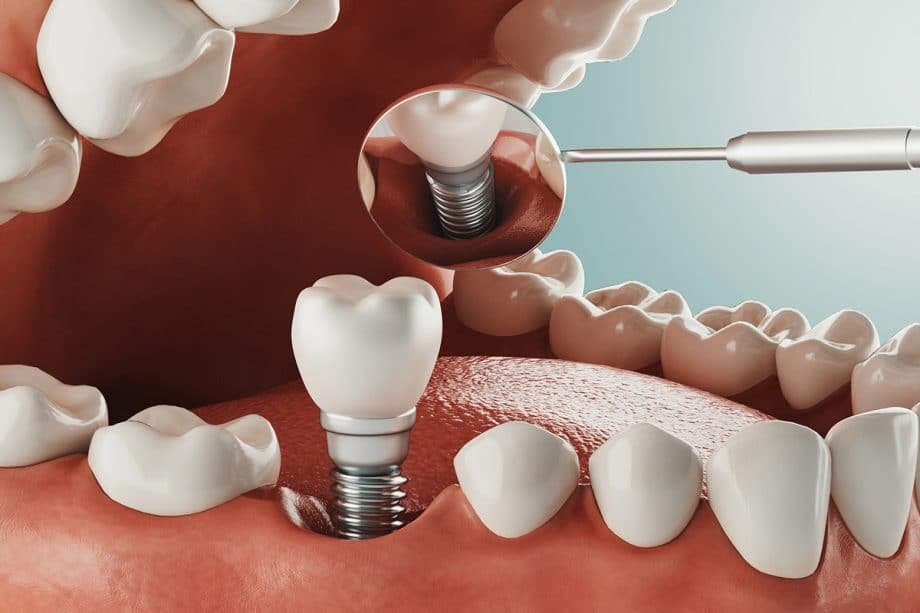Table of Contents
ToggleHow to ease implant discomfort?
To ease implant discomfort, several effective strategies can be employed. Initially, managing implant discomfort involves the use of prescribed pain medication to alleviate pain and reduce inflammation. Applying an ice pack to the affected area can also significantly decrease swelling and contribute to implant discomfort relief. Ensuring a soft diet in the days following the procedure minimizes stress on the implant site, aiding in the healing process. Additionally, practicing gentle oral hygiene and rinsing with salt water can promote healing and reduce implant discomfort . It’s crucial to follow these steps carefully and consult your dentist if implant discomfort persists or escalates, as they can provide further guidance tailored to your specific needs.
Kristina's E-Max Veneers Transformation in Turkey: Kristal Clinic Beauty Bliss!
Get ready to be amazed by the stunning transformation in our latest YouTube video! Join us on a journey to Kristal Clinic in Turkey, where Kristina undergoes...
. The Dental Implant Process
The journey towards receiving dental implants involves several key stages, from the initial consultation to the recovery phase.
- Initial Consultation: This first step involves a thorough examination of your oral health, including X-rays or 3D images, to assess your jawbone’s condition and discuss your medical history. It’s an opportunity to formulate a tailored treatment plan.
- Preparation: Depending on your dental health, preparatory procedures such as bone grafting might be necessary to ensure a solid foundation for the implants.
- Implant Placement: The implant, a titanium post, is surgically inserted into the jawbone, under local anesthesia to minimize discomfort. This phase requires a healing period, allowing the implant to integrate with the bone, a process known as osseointegration.
- Abutment Placement: After healing, an abutment is attached to the implant. This piece serves as a connector for the final crown.
- Crown Placement: The final step involves attaching the custom-made crown to the abutment, completing the restoration.
2. Benefits of Dental Implants
Dental implants offer significant advantages, particularly regarding longevity and bone health, but concerns such as implant discomfort are common.
- Longevity: With proper care, dental implants can last a lifetime. They are designed to be a permanent solution to tooth loss.
- Bone Health: Implants stimulate the jawbone, preventing the bone loss that often accompanies tooth loss. This stimulation helps maintain the jawbone’s strength and structure.
- Implant Discomfort: While the thought of implant discomfort might be concerning, it’s generally manageable with proper pain management strategies. The discomfort experienced post-surgery is typically temporary and can be effectively controlled with medications prescribed by your dental professional.
3. Aftercare Tips
Proper aftercare is crucial for healing and maintaining the success of dental implants.
- Oral Hygiene: Maintain a meticulous oral hygiene routine, including brushing twice a day and flossing daily. Consider using a soft-bristled toothbrush and low-abrasive toothpaste.
- Regular Dental Visits: Schedule regular check-ups and cleanings to ensure the health of your implant and overall oral health.
- Avoid Hard Foods: In the early stages of healing, avoid hard and sticky foods that could damage the implant.
- Quit Smoking: Smoking can adversely affect the healing process and the long-term success of the implant.
Role of Dental Bridges in Restoring Multiple Missing Teeth
Dental bridges consist of one or more artificial teeth (pontics) held in place by crowns that are affixed to the adjacent natural teeth or implants. This setup allows for the replacement of a single tooth or several teeth in a row. By bridging the gap, they help maintain the natural shape of the face, alleviate stress on the bite, and prevent remaining teeth from shifting out of position, which could lead to further dental complications.
Cost-Effectiveness
One of the appealing factors of dental bridges is their cost-effectiveness compared to other restorative options, such as dental implants. Since they can be completed in fewer visits and do not require surgical intervention, the overall treatment cost can be lower. This makes bridges an accessible option for many patients who need to replace missing teeth but are concerned about the expenses.
Non-Surgical Appeal
The non-surgical nature of dental bridges is another advantage. Unlike dental implants, which require surgery to place the implant into the jawbone, bridges utilize the existing natural teeth or implants as support. This aspect significantly reduces the complexity of the procedure, the associated discomfort, and the recovery time, making it a preferable choice for patients who are apprehensive about undergoing surgery.
Considerations
- Impact on Adjacent Teeth: To anchor a bridge, the adjacent teeth must be prepared by removing a portion of enamel to allow for the placement of the crowns. This modification can weaken these supporting teeth and make them more susceptible to decay and other dental issues.
- Potential for Bone Loss: Unlike implants, which mimic the root of a tooth and stimulate bone growth, bridges do not offer the same level of stimulation to the jawbone beneath the missing tooth. Over time, this lack of stimulation can lead to bone loss, affecting the overall health of the jaw and potentially altering the facial structure.

Clinic Success Rates and Patient Outcomes
- Kristal Clinic’s Success Rates: Boasts a dental implant success rate of over 98%, based on the last five years of procedures.
- Patient Outcomes: 95% of patients reported satisfaction with their implant or bridging treatments, noting improvements in functionality and aesthetics.
Transparency in Patient Testimonials
- Collection and Verification: Testimonials are collected through verified patient feedback platforms and directly at the clinic, with consent for publication. Each review undergoes a verification process to ensure authenticity.
Affiliations with Dental Associations
- Kristal Clinic holds memberships with the German Association of Oral Implantology and the Turkish Dental Association, reflecting its commitment to adhering to high standards and staying abreast of dental advancements.
Detailed Comparison: Dental Implants vs. Bridges
Longevity: Dental implants can last a lifetime with proper care, whereas bridges typically last 10-15 years.
Impact on Adjacent Teeth: Implants do not require altering adjacent teeth, preserving more of the natural tooth structure. Bridges, however, require shaping the adjacent teeth to support the bridge.
Bone Health: Implants stimulate and preserve bone density, preventing bone loss. Bridges do not stimulate bone, potentially leading to bone loss over time.
Credentials and Qualifications of Dental Professionals
Expertise in Dental Implants and Bridges at Kristal Clinic
At Kristal Clinic, our team of dental experts stands at the forefront of the dental health industry, offering a unique blend of experience, innovation, and personalized care. Each member of our professional team brings a wealth of expertise in their respective fields, including advanced specialties such as oral and maxillofacial surgery, cosmetic dentistry, and implantology.
stands at the forefront of the dental health industry, offering a unique blend of experience, innovation, and personalized care. Each member of our professional team brings a wealth of expertise in their respective fields, including advanced specialties such as oral and maxillofacial surgery, cosmetic dentistry, and implantology.
stands at the forefront of the dental health industry, offering a unique blend of experience, innovation, and personalized care. Each member of our professional team brings a wealth of expertise in their respective fields, including advanced specialties such as oral and maxillofacial surgery, cosmetic dentistry, and implantology.
Broad Audience Relevance
- Global Considerations: Include information on how dental standards and technologies used in Germany and Turkey compare to other leading countries in dental care.
- Cost Analysis: Offer a general cost comparison to help international patients weigh the financial implications of undergoing treatment in Germany, Turkey, versus their home countries.
Sources:
- “Dental Implants: Procedure, Pain Management, and Recovery” – American Academy of Implant Dentistry.
- “Pain and Discomfort Following Dental Implant Surgery: A Clinical Trial” – National Institutes of Health.
- “Comparative Evaluation of Pain and Anxiety Levels in Patients Undergoing Dental Implant Surgery” – Journal of Contemporary Dental Practice.
- “Advancements in Pain Management for Dental Implant Procedures” – European Journal of Dentistry.
- “Patient Satisfaction and Pain Perception in Dental Implant Procedures” – Journal of Prosthodontics.
Dental Implants
Advantages:
- Longevity: Dental implants can last a lifetime with proper care.
- Bone Health: They prevent bone loss by stimulating bone growth, maintaining the jawbone’s integrity.
- Aesthetics and Functionality: Implants closely mimic the look and function of natural teeth.
Disadvantages:
- Implant Discomfort: The surgical procedure for implants can lead to implant discomfort during the recovery period. However, pain management techniques have advanced significantly.
- Cost and Time: Implants are generally more expensive than bridges and require a longer treatment and healing period.
- Surgical Risks: As with any surgery, there’s a risk of infection or implant discomfort post-operation.
Dental Bridges
Advantages:
- Non-Surgical Option: Bridges offer a non-surgical alternative to replacing missing teeth, avoiding the implant discomfort associated with surgical procedures.
- Cost-Effectiveness: Generally less expensive and completed in fewer visits than implants.
- Ease of Procedure: Less invasive, with no surgery required, minimizing implant discomfort.
Disadvantages:
- Dependency on Neighboring Teeth: Bridges rely on adjacent teeth for support, which may weaken them over time.
- Limited Lifespan: Bridges typically last 5-15 years, shorter than implants.
- Bone Loss: They do not prevent bone loss beneath the missing tooth, unlike implants that provide stimulation to maintain bone mass.
Implant Discomfort is a significant consideration for many patients. While dental implants are associated with a period of post-surgical implant discomfort, advances in dental technology and pain management have made the process more comfortable than ever before. Patients are advised to discuss pain management strategies with their dental professional to mitigate implant discomfort effectively.
Both treatment options have their unique set of advantages and disadvantages. The choice between dental implants and bridges should be made after consulting with a dental professional, considering factors like oral health status, personal preferences, and financial considerations. Understanding the potential for implant discomfort and weighing it against the long-term benefits of implants is part of making an informed decision.
Q1: What causes implant discomfort after a dental implant surgery?
A1: Implant discomfort post-surgery is primarily due to the invasive nature of the procedure, where a titanium post is inserted into the jawbone. This discomfort is a normal part of the healing process as the body adjusts to the implant.
Q2: How long does implant discomfort typically last?
A2: Implant discomfort is usually temporary, often lasting a few days to a week after the surgery. The intensity of discomfort diminishes gradually as the implant site heals
Q3: Are there effective ways to manage implant discomfort at home?
A3: Yes, managing implant discomfort can involve over-the-counter pain relievers, ice packs to reduce swelling, and soft foods to minimize pressure on the implant site during the initial healing phase.
Q4: Can implant discomfort indicate a complication with the dental implant?
A4: While implant discomfort is expected, persistent or increasing discomfort may indicate complications such as infection or improper implant integration. It's essential to consult with your dentist if you experience significant discomfort beyond the typical healing period.



